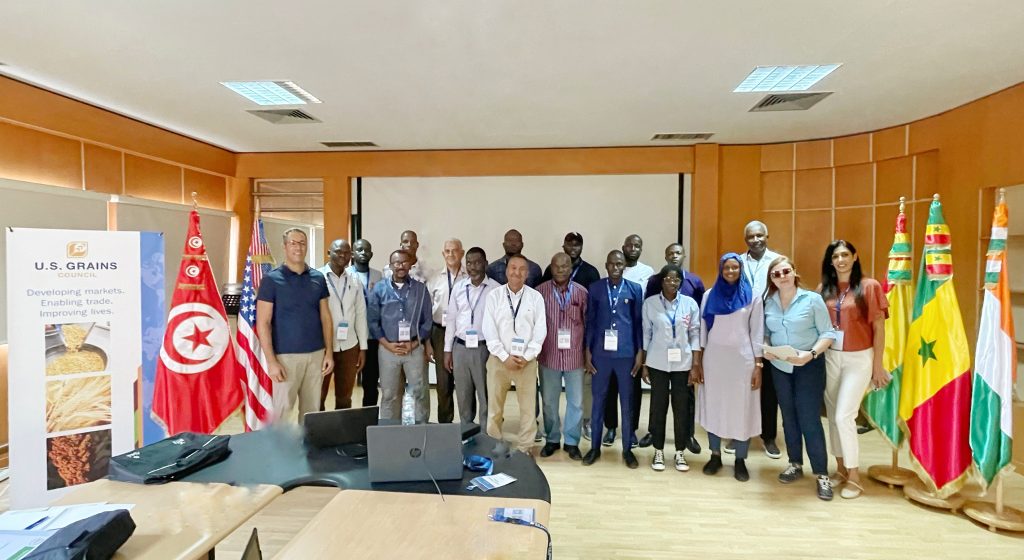Recently, the U.S. Grains Council (USGC) hosted a training course for poultry producers from Guinea, the Ivory Coast and Senegal to adopt best practices for raising livestock and learn how U.S. corn can improve the efficiency of their operations.
“Africa is a rapidly growing region and demand for animal protein continues to rise, creating an opportunity for the Council and its partners to develop markets that will be vital for future generations of U.S. producers,” said Mohamed Salah Bouthour, USGC deputy regional director for Africa.
“This training opportunity equipped attendees with the knowledge and skills to increase livestock health and yields, driving demand for raw feed materials.”
Participants gathered at the Tunisian Feed Training Center in Tunis for the weeklong event that featured presentations from industry experts and hands-on learning experiences. The first seminar topics focused on feed diet formulation techniques and the raw materials involved in feed production, including U.S. corn and its co-products, – distiller’s dried grains with solubles (DDGS) and corn fermented protein (CFP).
Other presentations examined the feed production process, the poultry sector supply, feed storage and quality control so attendees could understand the many factors involved in creating a successful poultry operation.
Learning opportunities outside the training center included visits to a hatchery, feed mill and slaughterhouse for participants to see the process of raising poultry from start to finish so they can apply those techniques to their own businesses.
“These training programs are a true win-win for everyone involved. Participants gain a wealth of knowledge on how to optimize their farms and facilities, earning them more money and improving the products they sell to their local communities, all while developing demand and loyalty to U.S. corn,” Bouthour said.
“We look forward to many more training sessions for African producers that mutually benefit the Council’s members and the agricultural industry in the region.”
Learn more about the Council’s work in Africa here.
About The U.S. Grains Council
The U.S. Grains Council develops export markets for U.S. barley, corn, sorghum and related products including distiller’s dried grains with solubles (DDGS) and ethanol. With full-time presence in 28 locations, the Council operates programs in more than 50 countries and the European Union. The Council believes exports are vital to global economic development and to U.S. agriculture’s profitability. Detailed information about the Council and its programs is online at www.grains.org.

